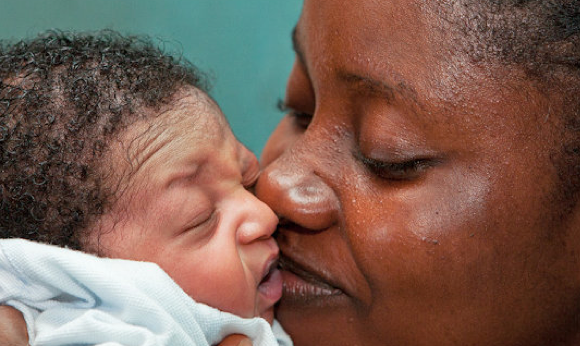Maternal And Child Health Advocacy International
By Jenny McBain: Technology can easily be employed to bridge geographical distance but it takes a special combination of compassion, imagination and determination to bridge a cultural gap and bring about positive social change in far flung communities.
A small Highland based charity headed run by two medical doctors, who contribute their time for free, successfully allows people in the UK to have a positive impact on the lives of mothers and children in Sub-Saharan Africa. The charity is Maternal and Childhealth Advocacy International (MCAI) and it exists to make birth as positive and safe an experience as possible in some of the world’s poorest places.
Dr Rhona MacDonald is one half of the medical partnership and she is married to the charity’s founder Professor David Southall. She sums up the core values of MCAI this way. She says, “We believe that every human life is of equal value and every mother deserves to have the opportunity to be excited about the birth of her child. So we strive to work with existing authorities and agencies so that our efforts, to improve free access to maternal and child health care, are sustainable long term.”
Rhona, who is an expert in primary health care and public health, has many years of hands-on experience with major international aid agencies on which to draw. So she has experience on how to listen to people on the ground and how to get things done. She says, “We are a small charity; a grass roots one which hasn’t lost sight of what it is doing and we believe in collaboration rather than competition.”
MCAI has a number of ongoing projects which illustrate this focused approach. For example, a book is being created in response to requests from local healthcare workers. They wanted a practical manual which would act as a guide, outlining exactly how to manage virtually everything to do with hospital care for maternal and child health. This is currently with the publishers having been reviewed by 100 experts from around the world.
Around 50% of mothers who give birth in Sub- Saharan Africa are actually girls; which is to say that they are under the age of 18. In fact, many are as young as 14. Their physical immaturity is often compounded by the complication of female genital cutting -which used to be referred to as female genital mutilation. Such factors have an anatomical impact that can lead to birthing complications and health care workers need special knowledge in order to know how best to cope.
Access to electronic devices and to the internet is still extremely limited in many parts of Africa, so a physical book is a practical way of disseminating up to date, evidence based information. The charity aims to raise £20,000 in order to print and distribute 10,000 copies.
So besides giving of their time for free, Rhona and David have found a number of ways to keep running costs low. Rhona says, “We relocated from a city office in the centre of Nottingham to our home in Poolewe in the Northwest Highlands. We managed to work without an office until one became available in the village hall- at a rate which is much lower than that charged in cities. Our remote location does not present any problems. In fact, there is a great deal of goodwill from the community. People around the area are pleased that we are here and interested and supportive of what we do.”
A minimal staff of three paid employees keeps things running administratively in the UK and David and Rhona undertake project work abroad along with locally based staff. MCAI staff and trustees come up with creative ideas such as the satin project which invites interested individuals to get involved in a bit of life saving craft work and produce re-usable cotton sanitary pads which mothers can use in the early days postnatal. (Templates and instructions are on the website)
Rhona says, “By providing hygienic sanitary protection we can prevent new mothers from contracting an illness- commonly known as child birth fever- which can lead to suffering, disability and death.”
In a constrained financial climate in which charities are competing for resources it is refreshing to come across an organisation which delivers extraordinary value for money. Your contribution will not be splurged on fancy new facilities. Instead, an existing maternity unit in Gambia is being refurbished using local tradesman at a cost of just £20,000. Similarly, an emergency room in Liberia will be re-equipped for the modest sum of £16,000.
Supporters are urged to send some money, do a bit of fundraising or simply to pick up a needle and thread in order to improve life for new mums. Rhona says, “It’s all about the women, babies and children who we are trying to help. I’ve worked in these countries for many years and, once you have been privileged enough to meet them, you can never forget them.”
When asked, what philosophy best sums up her approach to helping others Rhona replies, “I recall hearing that no one person can change the world but you can change the world for one person.”















Write Your Comment